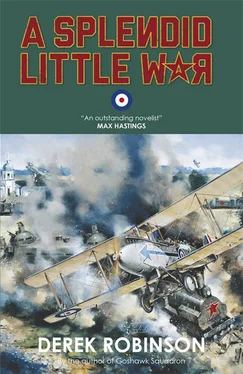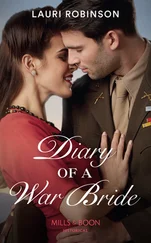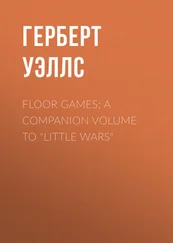Now there was nothing to do. Nothing to read. Borodin had the only newspaper, and it was in Russian.
Wragge sprawled in a chair and watched him, and wondered what was so interesting in the dense columns of type. Yards of tripe, probably. Did the Russians eat tripe? Chef would know. Not that it mattered. “Count,” he said. “I’ve been thinking about what you told us. The peasants and taxes and so on. What a rotten life they have.”
“They got shat upon,” Jessop said bitterly. “From a great height.” He felt badly about being blamed for the hot coffee.
“My point is, it wouldn’t happen in England,” Wragge said. “They’d kick up a fuss, and Parliament would pass a law, or something. So why do your chaps put up with it?”
“Their toil is appalling, I agree,” Borodin said. “But look at the holidays. Very generous. Nobody works on the holy days of the church, and they amount to nearly one-third of the year.”
That provoked laughter. “So they don’t mind working like dogs for precious little,” Dextry said, “because tomorrow’s always a day off.”
“It’s not as simple as that. You can’t understand the peasantry unless you realize how devoted they are to the Church. Russia is not like the West. Our Orthodox Church is the same as the State. The Church is Russia and Russia is the Church.”
“Well, we have the Church of England,” Maynard said. “It’s as English as can be. God Save the King, and all that.”
“Yes. But an Englishman can take it or leave it. A Russian believes that Christ made the Orthodox Church and that’s why it’s unalterable. And so is Russia, and so is the peasantry, unless the Tsar says otherwise, because the Tsar is God’s spokesman. In a sense, he is God.”
“Was,” Jessop said.
“And then there’s Rasputin,” Wragge said.
“Was,” Jessop said happily. He was doing well. Everyone brightened. They’d heard enough of the Orthodox Church.
“Ah, what a magnificent fraud!” Borodin said. “I knew him, slightly. The smell was memorable. He never washed and his stench was as foul as his language, but he ravished half the noblewomen in Petersburg. Including the Empress Alexandra.”
“I met a chap in France,” Hopton said. “He was on the same squadron as a Russian duke who said Rasputin had three balls. Is that right?”
“I never inspected him. It’s possible. His stamina was prodigious.”
“A fraud, you said.” Wragge wanted more. They all wanted more. “A terrific fraud. How so?”
“Oh… it goes back to the Church, I’m afraid. You see, Rasputin was what we call a starets , a holy man sent by God for the salvation of our souls. Surrender your soul to the starets , and he will save you. Rasputin preached salvation through sin. How can we repent if we have not first sinned? That’s where he started.”
“Not so fast,” Maynard said. He was making notes.
“Rasputin recommended sins of the flesh,” Borodin said. “Top of the list for winning God’s forgiveness.”
“That’s jolly clever,” Dextry said.
“And if God sends a temptation, yield at once, so you can be forgiven. That was Rasputin’s trump card. The ladies lined up for a chance to sin and repent in his bed.”
“Heavenly humping,” Wragge said. “Unbeatable.”
“No wonder he was tritesticular,” Hopton said. Maynard looked up from his notes. “Disease of sheep,” Hopton told him.
There was a silence while they contemplated a stampede of naked noblewomen into a hairy, smelly Russian’s bed.
“It’s a beautiful swindle,” Wragge said, “but I can’t see it working in the Church of England. Not unless you shave first.”
“I’ll shave,” Maynard said.
4
Hackett ran out of enthusiasm. Ran out of encouragement, of urgency, of attack. He gave up. They won. It was their locomotive and they drove it at their speed. Twenty-three miles an hour meant reaching Taganrog the day after tomorrow, maybe even later. Well, this was Russia. They would be shot if they went any faster.
He sat on the coal in the tender and fingered his revolver.
Suppose he fired a couple of shots over their heads. That would make them jump. Would it do any good? The driver looked shaky, gunfire might be more than he could stand. If he collapsed it would make matters worse. The stoker couldn’t shovel coal and drive. Forget guns.
In fact Hackett began to feel sorry for them. The driver wasn’t strong enough to be on his feet all day behind a roaring, rocking engine. The stoker was younger but gusts of smoke got him coughing painfully and the damage to his left hand meant he could never hold a full shovel.
Hackett couldn’t sit and watch him struggle any longer. He got up and took the shovel from his hands.
“I know what I’m doing,” he bawled into the man’s ear. “I did this job in the Australian Navy.” Useless, meaningless; but he felt he had to say something. He set to work, flinging coal into the fire, remembering the easy rhythm, enjoying the exercise. The stoker sat and watched.
Soon, the train picked up speed. Hackett could tell by the change in the engine note, by a difference in the vibration beneath his feet. He took a break and went to look at the gauge. Divide by three, multiply by two. Thirty miles an hour. And climbing. He grinned at the driver and slapped him on the back. The man looked sick. “Sorry,” he shouted. “Didn’t mean to hurt you.” When he turned around the stoker had gone. Hackett searched and saw the man disappearing over the stack of coal, heading God knew where. “We don’t need him!” Hackett said, and got back to work. The coal burned easily. The fire turned from red-hot to white-hot. Hackett took off his tunic, and then his shirt. The engine had a thundering rumble that was different. He turned to look at the gauge and now the driver had gone too. Over the coal. Who would have thought the old fellow had the agility? He looked at the gauge. Nudging forty. It was vibrating so much that he leaned forward and looked closer. It struck him full in the face as if it had been fired from a gun, which in a sense it had. When the boiler blew, the locomotive shattered and bits rained on the steppe. Only the wheels and the chassis survived. It was almost a mile before the train stopped. Even without an engine, forty miles an hour creates a lot of momentum.
5
At 11.00 a.m., Jonathan Fitzroy met his Working Party as they arrived at the Royal College of Embroidery. Everyone got into an official car and drove to a side entrance of the Admiralty Building in Whitehall. “Sorry for the cloak-and-dagger,” he said. “All will be explained.”
A captain of Marines checked their identities and issued temporary passes. A Marine led them along corridors painted battleship grey, busy with men, some in naval uniform, some not, each carrying a file of documents. “Navy floats on paper,” General Stattaford said. “Abolish paper and the Navy would sink like a stone.”
They went down a flight of stairs, along another corridor, down more stairs. “Must be the crypt,” Stattaford said. “Where admirals go to die.”
The Marine took them into an outer office, where their passes were examined. They were shown into a large room, with a map table that was brightly lit by hanging lamps. Only one man was present: a naval commander, much decorated, stocky, grey hair cropped short, grey eyes that rarely blinked. Fitzroy took care of the introductions. He was Commander Judd. He shook hands. He had a grip like a blacksmith.
They sat at the table. Fitzroy said, “Commander Judd has information that the P.M. feels we should know. Something has happened.”
“This is a map of Kronstadt,” Judd said. “The home of the Russian fleet.” They leaned forward. There was much to see. The map was large, and so was the scale. “Kronstadt is at the head of the Baltic Sea, where the Gulf of Finland separates Finland from Russia. At its eastern end, the gulf narrows to become the Gulf of Petrograd, and this narrow gulf includes Kotlin Island.” Judd’s pointer circled the island. “Kotlin protects the naval base. Beyond the base, an estuary leads to Petrograd, but what matters to us is Kronstadt.”
Читать дальше











